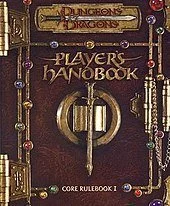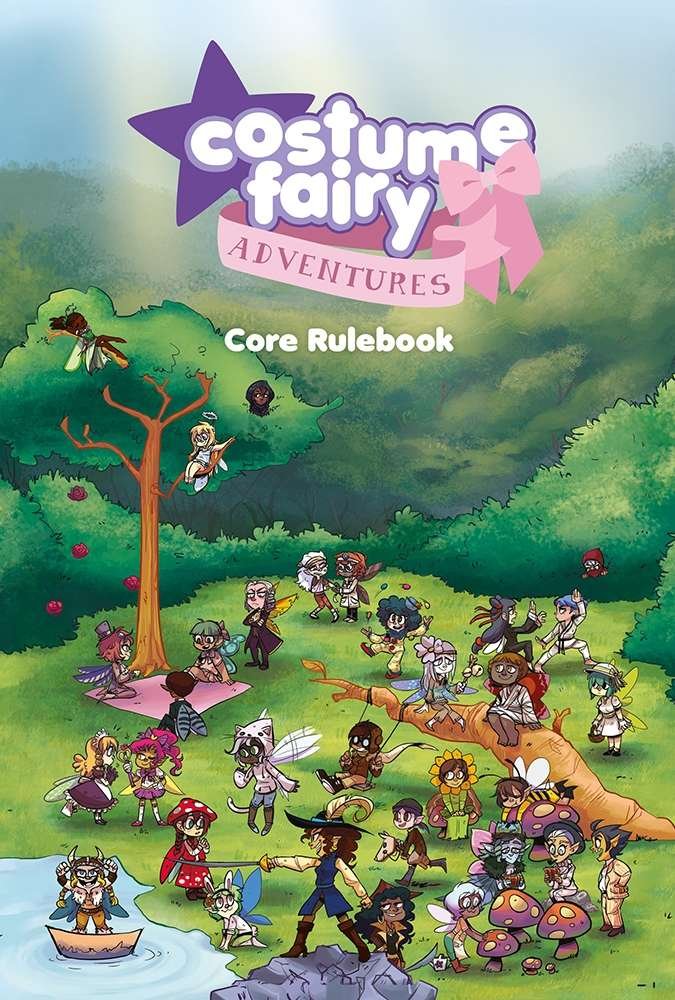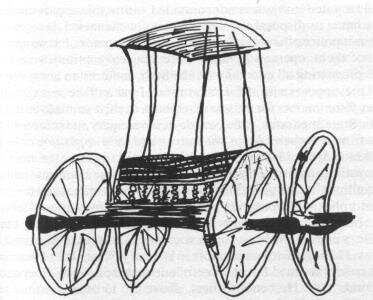Imagination-as-a-Service: The “Under-monetization” of D&D
Image taken from TeePublic. In Dungeons and Dragons and related systems, a 1 on the 20-sided die tends to represent a “critical failure” — the worst possible outcome. It happens about 5% of the time.
I’ve written in the past several times on the tabletop RPG hobby – I’ve been gaming since early in high school, and due to the fact that I expressed interest in it back in the 1990s, my original interest in the hobby might represent the biggest act of rebellion I engaged in when I was a child (I still recall my parent’s discomfort with it, given the lingering association that it had with the 1980s-era “satanic panic” at the time). We started with Dungeons & Dragons because, frankly, that’s just how the pipeline works: D&D is the most visible, and so it’s what you go through first.
The 3E handbook for D&D. Many of my weekends were spent flipping through it. My group — like many groups — had only one copy.
We played the then-current – Third – edition at the time, and oftentimes, my friends and I would gather once a week or so to play through a campaign. We kept the books and dice in common, so that we could expand our shared capabilities, and I still recall that we griped when they released the updated “3.5” version. But it was close enough that the transition wasn’t difficult. When the Fourth edition came out, I still recall that we looked at it closely, and saw that it elaborated on things that we didn’t think needed elaboration, and that it simplified things that we believed didn’t need simplification. We tossed it aside, and all of us gravitated towards other options.
Through college, I experimented with other games, often landing in Savage Worlds, which was simple, fast, and tactical. After graduate school, I started gaming with a group that experimented more often (this largely at the encouragement of Joel Gilmore, who wrote our only guest piece thus far on the website.)
I thought I wouldn’t really end up playing D&D again, but since the release of fifth edition, I’ve been pulled back into it three times – once for a one-shot, and twice for longer games, one of which I ran at the request of a member of our group. I prefer other systems, but it’s...fine? To dip into. One of the semi-regular game nights I attend from time to time is explicitly for that particular game.
Look: I’m a bit more kindly disposed towards Dungeons and Dragons than the Great Gatsby, which I often express my distaste for on this website, largely because the one-time-in-a-hundred where someone leaves an angry comment is funny to me (what a weird hill to die on!) but I’m being diplomatic here because of how rabid the fans of that game tend to be towards the idea that they might want to spend $15 to buy and try out another game when they have already sunk several hundred dollars into D&D-related paraphernalia (you all would like Fiasco, trust me).
Dungeons and Dragons has an out-sized effect on the hobby as a whole, and while I’ve seen several persuasive arguments that D&D should be considered a separate hobby from tabletop games as a broader practice, for the moment, they’re in the same basket. That means that what Hasbro – the owners of Wizards of the Coast, who produce D&D – does has an effect on the hobby as a whole.
Prokopetz heads up Penguin King Games, which published Costume Fairy Adventures. It’s aimed much younger than the things I tend to be interested in, but it’s a solid design and Prokopetz is an industry veteran.
So when I read this Tumblr post from veteran game designer David J. Prokopetz, I began to do research in my limited free time. It turns out that at least one official announcement from Hasbro mentioned in passing that the company feels that D&D is under-monetized (see here and here). Meaning, of course, that they believe that they can squeeze more money out of the people who play Dungeons and Dragons.
This is hardly new – I remember hearing a story about Monte Cook (designer of 3rd Edition, and later games such as Numenera and Invisible Sun) including a line in D&D Player’s Handbook – the most essential of the core books – that miniatures weren’t necessary, and that you could use anything to represent characters on the play mat when you need to represent physical space (my own groups would often use coins or dice, if we didn’t just opt for “theater of the mind”), which provoked an angry reaction from the head of Wizards of the Coast’s miniatures division. The game for the publisher has always been to make money, and there’s always been a balancing act between pulling more money from groups and making the game more accessible so more people can pay more money.
In short: in an effort to grow their profits by 50% by 2025, they’re going to increase the rate at which they’re going to extract money from their customers. To do this, they’re going to set up all manner of different ways to funnel money from the users of their product to themselves. With D&D and similar, this is difficult, because usually each group only needs — at most — one copy of each book. What they’re signalling now is that they think they have found a way to rework how the game functions to ensure that this practice comes to an end.
What these recent announcements, referring to the ostensible One D&D initiative that will ultimately be 6th Edition or functionally equivalent, suggests a greater reliance on D&D Beyond, an online service that organizes everything for the player. Chances are, there will be additional fees associated with that, requiring that people spend money on a regular basis to maintain their characters or retain access to pertinent errata.
This die doesn’t roll right. It always comes up brain stem.
This would also lead to a more data-driven approach on the publisher’s side: oh, fewer people are playing Fighters – let’s release a new subclass or additional character options that borrows elements that people like from these other, more popular releases. This is the more benign end of things – it could also end up with this same data being packaged and resold, then combined with data from other sources. How many people who used D&D to experiment with different gender expressions later came out as transgender? How many people who voted Republican regularly played elves versus played dwarves? We don’t necessarily know what these data points might suggest, but that’s the point: while the Cambridge Analytica scandal might have been more interesting if there was an orc angle, there are definite downsides.
Beyond the dystopian angle, though: it’s just bad design, and the people behind it should feel ashamed to lean so hard into an idea that’s so obviously bad.
Look: I’ll be frank with you, the list of things improved by inserting a computer into the loop is way shorter than the list of things ruined by inserting a computer into the loop.
If the wi-fi is out, if the power’s out and there’s nowhere to go but you have candles, dice, notebooks and a copy of the core book, you can tell stories until it comes back on. As an aside, the Broken Hands Team actually already did that one evening while waiting for the power to come back on: no need to sit in the dark, but also no need for Netflix or video games or anything of the sort. That’s why the hobby is great – it’s analog, and it’s flexible. If games are art – and I would say that they are – then the medium for them is the social contract.
When you limit things to what can be done on a proprietary computer system, then it’s going to impoverish the art form.
OGL is kind of important in game design: it’s basically the legal standard that allows game mechanics — and certain “standard” parts of the lore — to be borrowed without paying for a license. It’s not necessary for homebrew, but it’s still a fairly important standard, and a lot of designers get their professional start working under it.
Prediction is a fool’s errand, but I can’t help but feel that the moves that Hasbro is making here have only one real outcome: a greater flourishing of D&D 5E homebrew, with people designing things that drift further and further from the base game so that it eventually no longer resembles the source text. It may have some parts of it down in the DNA, but about halfway through the process, they’ll most likely try to find a way to take it off the OGL in an attempt to keep people inside their walled garden, and that will just lead to further drift.
Because a beneficial effect of the flexible, analog nature of the hobby is that it is inherently difficult to monetize: it doesn’t need anything digital, but it still benefits from digital distribution, which lowered the barrier of entry and led to a massive profusion of different approaches. It’s possible to rapidly prototype a game over the course of an afternoon, and release it in a few days. It won’t be polished, it may not have art attached to it, it may not be well laid-out, but it may still have innovative design elements and be worth playing.
Against this veritable swarm of rapidly-evolving, decentralized design, Hasbro is offering up a rigid behemoth.
Okay the Deleuzoguattarian thing probably alienates some RPG fans — those of you still into it, sound off in the comments, and if you’re designers, drop a link.
It is, fundamentally, a presentation of the same dichotomy that the first book I reviewed in my last slate was addressing: techne – knowledge rendered as legibility to a centralized authority – and metis – locally-bounded, contextual cunning. Which is, again, a reformulation of the Deleuzoguattarian division between (respectively) Royal and Nomad Science. However, due to the ground upon which this fight is unfolding, it seems fairly obvious to me that the metis faction, the adepts of nomad science, have the edge in a way that they don’t tend to elsewhere. It’s not like Hasbro can cut off your access to dice or pencils and wall you in with Dungeons and Dragons kitsch, and it isn’t necessary for Hasbro to even disappear for the Indie publishers to win. They simply need to survive, because they don’t need to capture the whole market to be viable. The more the publishers of D&D try to push their behemoth, the more it needs to be a behemoth to live.
Maybe it won’t be the computerization that kills it, but a step in that direction is a step towards its own downfall: and, frankly, the whole thing will probably improve around 7th or 8th edition when Hasbro sells the brand off at pennies on the dollar to someone else – maybe Jared Sinclair, the guy who already released a game called “6E” without the D&D trademark.
In any case, the important thing to keep in mind is what makes tabletop gaming actually fun and interesting: it isn’t the bells and whistles and things that you can do on a tablet – it’s the fact that you can create an interesting, original story collaboratively with a group of your friends.
It may not be praxis, but it’s something to do.
※
If you enjoyed reading this, consider following our writing staff on Twitter, where you can find Cameron and Edgar. Just in case you didn’t know, we also have a Facebook fan page, which you can follow if you’d like regular updates and a bookshop where you can buy the books we review and reference (while supporting both us and a coalition of local bookshops all over the United States.) We are also restarting our Tumblr, which you can follow here.
Also, Edgar is being included in an upcoming anthology — read our announcement here.






